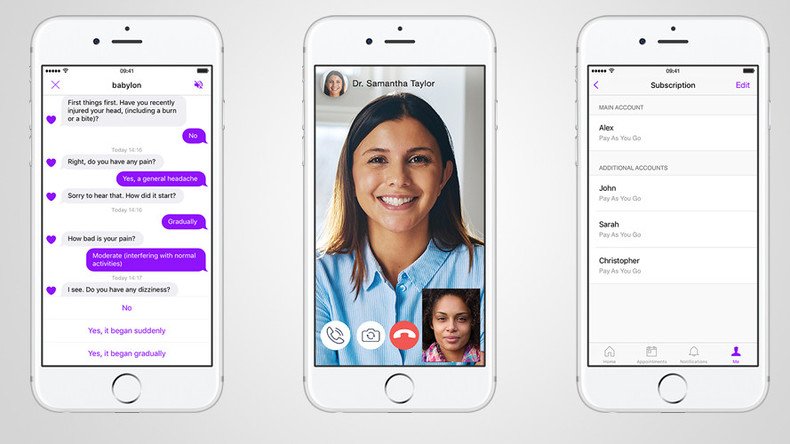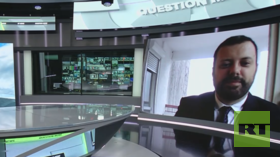Doctor Robot? British hospitals to trial AI helpline managed by ‘chatbots’

Britain’s state-run National Health Service (NHS) may soon direct emergency and advice calls to robot operators in a bid to ease pressure on overburdened accident and emergency (A&E) services.
An “artificially intelligent” chat service is to be trialled on 111 calls throughout England, after the number’s demand increased from two million to 15 million calls annually in just four years.
More than a million people would be given access to a free app powered by tech firm Babylon, where they can either consult a “chatbot” or enter their symptoms into the program. The bot will then advise whether the patient should stay at home, visit a local pharmacy, see a GP, or rush to hospital.
“We aim to provide an alternative to using the NHS 111 telephone number for service users that would find it most convenient to their lifestyle,” said chief operating officer at London Central and West, Adam Duncan.
“The use of the app could also reduce the demand on NHS 111 during the most busy periods, whilst retaining the high quality and accessible service.”
Hospitals up and down the country have been struggling with the growing number of patients requiring immediate attention, while spaces in hospitals and A&E units are scarce.
Scenes of casualty patients waiting for hours on trolleys in hospital corridors have become familiar to NHS staff.
Babylon says the service could save the NHS “substantial” time and money in assessing people’s medical concerns.
But practitioners and patients’ groups expressed concerns over the methods used to address higher patient demands.
.@HelenStokesLam warns that new tech initiatives don’t suit all patients & don’t always save resources, despite initial appeal of idea...
— RCGP (@rcgp) January 6, 2017
.@HelenStokesLam also unsure whether an app is qualified to decide how urgent a patient’s health prob is - pleased it's pilot to begin w/
— RCGP (@rcgp) January 6, 2017
British Medical Association (BMA) GP committee chairman Dr Chaand Nagpaul said: “Whilst it’s always important to maximize use of technology to empower patients and make efficient use of NHS resources, this initiative does not address the fundamental problem that we have a severe shortage of GPs and health professionals in community settings.
“The basic problem with NHS 111 is how it slavishly relies on algorithms and non-clinical staff without room for clinical interpretation in certain instances.
“This proposal does not address this fundamental limitation and may make the situation worse. What we should instead be doing is investing in having properly trained and appropriate clinical staff handling calls and requests from patients, complementing the use of new technologies.”
The app’s first six-month trial will be available to residents of North London neighborhoods in Camden, Islington, Barnet, Haringey, and Enfield from this month. Patients will still be free to use the old 111 helpline instead.














